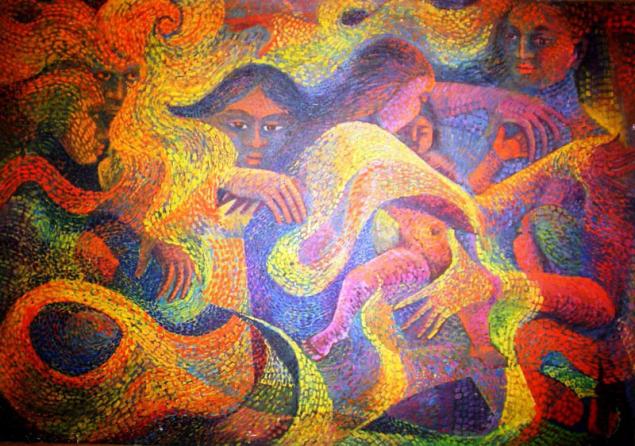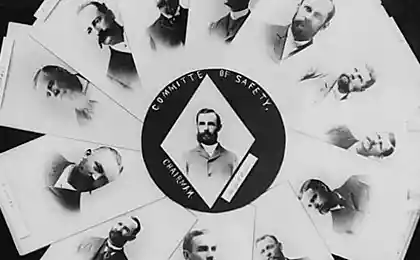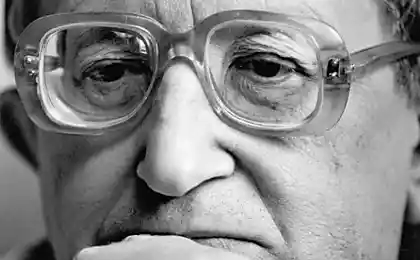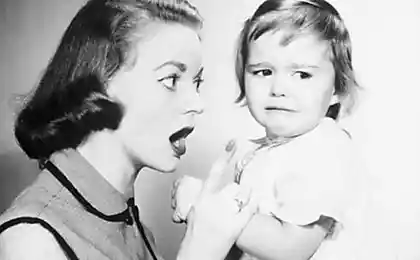485
How mankind will be released from the cruel experiments?
What is it that unites phenomena such as fascination with fantasy and the growth of the network "Classmates.ru", later marriages and aesthetics "mimimi", the epidemic of drug addiction and industry rejuvenation, attachment to TV and consumer credit boom? These are all manifestations of the same tendency, which psychologists and sociologists call "juvenilization society" (in the popular literature often say "infantilization"). Latin juvenilis means "youth", juvenilization is the orientation on youth attitude and behavior.

If the "discovery of childhood" in historical terms has occurred recently, in the mid — to-late nineteenth century, youth were seen even less. Only in 1960-1970 the third age between childhood and maturity drew the special attention. Before adult life began early, and the "transition" didn't have time. In the largest number of classes 12-year-old is already considered an employee, at sixteen, working life started. Age, conventionally attributed to the age of 18, were caught most in the position of family responsibility, the birth and upbringing of children.
New social attitudes far pushed the boundaries of growing up. The period up to 26 years in our time is even acceptable to "swing" — a slow procession of a young man on the steps of the educational institutions, to dream and samples. Almost everywhere young men and women at this time remain in parental care, carrying, lightweight, dedicated social functions. Marriage is not too changes the picture, because the birth of children is postponed to the thirtieth.
A popular aphorism says: "to Arrange a happy childhood is never too late". In the book of American sociologist Michael Kimmel "Boyish country: the perilous world where boys become men," analyzes the results of a survey of more than 4,000 young people aged 16 to 26 years. The author acknowledges that during the study he found himself as if in the society within the society; much looks like in the mirror. The reality of today's young people are perceived differently than it is in adults.
The timing of the transition from childhood fun to adulthood is not defined, respondents in fact do not know when you "grow up". It is not the boys and not men, and "the guys", and they live in a special game world, independent of the requirements of the parents, free from adult responsibility, delaying marriage and childbirth, focusing on the entertainment and at the same time feeling very insecure and uncomfortable.
Is possible that this transition will not happen at all, and the ideal of "forever young" person, adopted into the mass culture, decade will preserve them in a childish, aggressive and helpless.
One of the authorities of the modern social Sciences, Professor Zygmunt Bauman warns of exploding communications. According to him, "in comparison with previous generations, the young can no longer be considered as "miniature adults" or "adults of the future" or "they are not yet Mature, but will become Mature, as we"".
It's not the age-old man's grumbling about young people, but a statement of serious threats. What the future holds for the society in which one generation refused to replace the other? How does an adult with a child and helping the other to work positively together?
Children in the adult world
For anybody not a secret that childishness in itself is not a disadvantage. Curiosity, spontaneity, trust, and friendliness are undeniable "pluses" of childhood and its virtue.
Since the Enlightenment, with the confidence of a Czech teacher and humanist Jan Amos Comenius in the fact that in the sight of God of equal value and have the ovary and the flower, and ripe fruit offers a period of fascination with the teaching and romanticize childhood. Children admire about the lost purity lament: "Who has not sometimes regretted about this age when on the lips, forever, laughter, and soul always the world?" (Jean-Jacques Rousseau).
Indeed, the adult world is too often cruel, selfish, pragmatic. However, not every adult knows how to "be Mature", "make decisions", "hear" and "see", "analyze" and "build relationships", which are often taken as an example to the children. In the monograph on the psychology of personality American Gordon Allport admits: "Not all adults reach full maturity. They grown individuals whose motivation still smells like a nursery. Not all adults control their behavior based on clear, reasonable principles".
Boys and girls grow up, acquire money, things, status, rights, but society is full of selfish and unhappy people. Wrong ironic French writer Gilbert, Cesbron when he says that the boy turns into an adult when he finally realizes that the adults in the world.
The gospel speaks of childishness as a condition for Christian life and salvation: Jesus called a little child and set him in their midst and said, truly I say to you, unless you turn and become like children, you will never enter the Kingdom of heaven (Matt 18:2-3). Many great men — from Leonardo and Mozart to Einstein and Dali were retained something childish. Dickens, Dostoevsky, Chekhov, Hugo, Galsworthy output features outstanding childishness heroes of their works. One of the most famous and striking examples — the image of Prince Myshkin, the idiot, life experience as its far from the condition of the child, but sincerity of belief is blowing up the narrow-minded arrogance and complacency.
Another "idiot" — Forrest Gump from the movie of the same name directed by Robert Zemeckis — a difficult childhood, congenital disabilities, it was plagued by constant ridicule and harassment. Despite this, the boy retains a kindness and openness. While "normal" peers, growing up, imbued with cynicism and spend an idle life, Forrest retains faith in companionship and love, the need to do what you must. This childlike nature has nothing to do with infantilism. On the contrary, time and again, Forrest with honor out of the most difficult situations, achieving success, where any other would have long retreated.
His integrity draws people to him, he is mentally retarded, according to medical opinion, are not coming out of childhood, demonstrates the ability to resurrect hope and to fix the crippled destinies. Patience, he returns the love for yourself that which shunned him as inferior. His relationship with his baby-son marked by closeness and understanding. So "eternal child" can win much compared to seemingly healthy people, exposing and refuting the appearance of solidity of public order.
Adult children in the world
Type "eternal child" includes "young adults" — examples of genius, talent, heroism even, revealed in the childhood years. It is known, for example, that Frederic Chopin made his debut before the public at the age of eight, Richard Strauss and Joseph Haydn wrote music for 6 years. Sasha Pushkin 8-year-old boy wrote poetry in French. Alexander Griboedov at the age of 11 he entered the Moscow University, the great Goethe to 13 years owned six languages, and Ilya Repin to 6 years good painting.
In critical circumstances, in sickness and in war, children grow up particularly sharply. One of the heroes of the great Patriotic war, Yuri I. Zhdanko, recalls: "I did what I could not adults, and situations where something they could not, and I could, had a lot of". It's hard to believe, but in 1942, Yura, 11-year-old boy, was a pupil of the reconnaissance 332 th infantry division, Ivanovo, partisans, he carried out important tasks of command, landed with a parachute in the enemy's rear, served as a guide to familiar to him the Belarusian land during the period of its liberation from the Nazis.
Such examples are not unique. Hundreds of boys in different ways found a way to stay in existing units and in guerrilla units, together with the senior beat the enemy. The girls claimed the missing years to go aninstructor to the front. In 1957, the writer Vladimir Bogomolov, published the story "Ivan" about a twelve year old scout Ivan Bondarev, all of which loved ones died, and the mother was missing. The story was made up according to the memories of Bogomolov, the former front scout. Subsequently, the young Director Andrei Tarkovsky directed the film, calling it "Ivan's childhood". The role of Ivan Bondarev with a sense played a 14-year-old Kolya Burlyaev.
And in another role, in the final novel "the Bell. 1423" Tarkovsky's film "Andrei Rublev", the same Nikolai Burlyayev plays a young apprentice Boriska who undertake to cast the bell. "I live, no one to cast a bell", — bitterly complain about people. What should I do if I survived a single caster? Who died of disease and hunger, who were taken in full to the Tatars. And here the young man, the son of the caster stepping through uncertainty and fear, promises to remember his father's secret skill, thinking and looking for. Hundreds of people work under him; all of the stress waiting to see if this puny boy to emulate his father. And here's the delight: cast bell comes to life, gives you a powerful, smooth sound, and with it revives the torn continuity of Russian culture and spirit.
In an artificial Paradise
So, the younger generation reaches out, makes an effort, so the story can continue, to leak inseparable, while older prepare is necessary for a changeover.
But something breaks in the centuries-oiled machine, and child stops to look for support in the adult, while the adult does not want to show maturity. After the Second world war youth and the childhood fetish for them is fixed property, perpetual immaturity and childishness. The famous Spanish philosopher Ortega y Gasset in "the Revolt of the masses" remarks: "perhaps this is the most ridiculous and ugly a product of time. Adults call themselves young because they heard that the youth has more rights than responsibilities; that she could postpone the performance of duties for an indefinite time when “ripe”. Youth as such is always considered free of obligations to do something serious, she always lived on credit".
A phenomenon called "youth revolution", is an explosive emancipation with a total revaluation of values. How singing idols of those years, band the Who: "Hope I die before I get old" ("Hope I die before I get old").
In the USSR, on the other side of the iron curtain, juvenilization society acquired its own characteristics, although they occur in approximately similar time frames. With the end of postwar reconstruction became acutely felt the hitch in setting goals. Soviet society found that he was, relatively speaking, "no hurry". In the absence of contradictions, with a gradual increase in the standard of living and a dense ideological tutelage, there was a special type of social was Infante, people with a low level of material aspirations, but with a request for cultural and technocratic romance. Disputes "physicists" and "lyricists" travel clubs, construction teams...
Gradually sociology in the Soviet Union also began to celebrate the "rejuvenation" of social life: a later entry into working life and in marriage, the increase in the number of divorces, abortions, the tendency to reduce liability, easier life, etc. When in the late 1980s a group of researchers composed Chebanov S. A. Copikova and M. Kovaleva held neurophysiological examination of the adult population of Moscow, it became clear that a significant part of it remains in a state of psychological adolescence, many older people have a child or adolescent EEG, maturity remains a curiosity. "The country began to resemble the sprawling kindergarten" — sums up on this occasion, the Russian Institute of Culturology Oleg Rumyantsev.
So why is the society in a prosperous, it would seem that the conditions detects signs of over ripeness and decay? To answer this question at the time tried English scientist-ethologist John Calhoun. In 1972, together with the National Institute of mental health, he conducted the most famous experiment
In the framework of the project "universe-25" (Universe-25) was arranged artificial Paradise — stand, which maintained a constant comfortable temperature, lighting, humidity and cleanliness, and the food and drink were served in abundance. The installation is populated by mice, leaving four families mouse freely grow in population with up to several thousand individuals. Reasons for the struggle for existence in "artificial Paradise" was not, and the patterns of population development were dictated solely by the peculiarities of the behavior of this species.
The result was shocking. The initial rapid growth of a mouse colony has been stagnant. With some point a small experiment participants seemed to be fed up and began to act against the natural rules, peculiar species in natural conditions. There was a category of outcasts that became the object of aggression among the males stood out "beautiful", engaged mainly themselves.
Females suddenly decreased fertility, among them were notable females-singles and females-recluse. Animals are more and more drawn into the circle of "deviant" behavior and apathy. While plentiful food cannibalism flourished, unnatural same-gender attraction. Females refused to educate the young and killed them. Participants rapidly died out in 1780 on day died last occupant "mouse Paradise."
The experience was repeated many times. John. Calhoun has made efforts to improve the stand, eliminating the influence of extraneous or random factors. The result was sad: population, despite everything, was dying. The number "25" in the title of the project — "universe-25" — means the last, the twenty-fifth under the account attempt.
Of course, mice and men are not equal in the world of living beings. People's lives are arranged much more complicated. And yet the similarity of some of the phenomena impressed the authors of the study. The rat colony has ruined what could be called "dominance of the signs of an immature specimen". This is strictly scientific, in the study of biology, the definition of "juvenilization". Mouse, by and large, didn't want to be adults, to Express themselves responsibly and it died!
The Experiment John. Calhoun was important because it simulated the processes in the human society, which, according to General opinion, now is the time to high phases of civilizational development, improvement and certainty, however, experienced the effects of urban overcrowding and antisocial behaviour. Creatures of the experimental populations are, of course, did not know and could not know of the word "regression", for he was not endowed with human intelligence and abilities. You can't ask the mice, why are they so careless and you know that all this will end badly for them. But the paradox is that among our contemporaries, people of the XXI century, there are few who will answer these questions in the face of the regress and the vicious circle of deviance and apathy, which flows to mankind.
Civilization Neverland
What's is juvenilization (infantilization) and it looks like society is infantile, standing on the brink of disaster? Of course, he has many negative characteristics: immaturity, dependency, lack of motivation, chaotic behavior when the dominant needs for pleasure and entertainment. In the home "adult children" selfish and like expensive new clothes, computer games, and about marriage and having children, saying, "not yet ready" or "not ready". Policy baby attitude pre-supposes that "all you need" and you're someone (some "adults", the king, his mother and father, government officials, school) will care. This is not childishness, which is blessed by Christ and that is a sign of a lively, open soul.
The number of people called kidstime (kidult, English kid — child and adult — adult), growing steadily. Type Infante was described in detail, it is indicated by many factors of its formation. The audience of modern journals and psychological consultations diligently warn against attempts to build a relationship with the bearer of the "Peter pan syndrome" — the eternal boy from Neverland. But despite extensive criticism of infantilism, the problem remains beyond the modern worldview, in which people psychologically feel younger and younger.
The origins of infantilism are not limited to errors in the education at an early age or of weak moral regulation of behavior. Moral censure of infantilism and calls for adulthood to a certain extent useless, because infantilism is impregnated the whole atmosphere of modernity and "the erosion of adulthood", waste authority of older people, occurs rapidly.
Today's society is a little worried about the life of the loan, seeking rather to satisfy barely originated the desire. It's infected "neophilia" when any new acquisition — the car, the gadget, the atmosphere in the apartment or close to people soon lose their appeal and must continuously be replaced, "upgrade". It is not possible to otlepitsya from marginalized and poorly performing educational institutions, stamping new and new generations of childish. As a whole, our society shows a lack of maturity, being in total dependence on the media, hiding behind the impersonal social role of fashion and popular opinion.
Wisdom in our days replaced by "adequacy" and "relevance", that is, quite simply, constant attention to social innovations. "Be aware" is more important than to have experience and principles. 50 year and even 60 year old are confronted with the need to develop a mobile phone and a computer to delve into the many "options" to engage in a cycle of discounts and prices, mortgages and loan agreements, travel directions and restaurant service, a new, unprecedented during the whole of their former life, standards of comfort.
And with all of these young borrowed a whole array of ideas and assessments. Youth in catchy corporate robes in the interior of a Bank office and a shopping centre plays a role of conductors and pilots in the world with the latest innovations, behaving like condescending teachers and advisers in relation to the bewildered older generation.
However, neither the ability to make a career and money, nor the ability to navigate in the methods of achieving social success nor positive thinking and high self esteem are not synonymous personal maturity. A person becomes Mature when moral support in itself, establishes a comprehensive relationship with the created world and comes to the simplicity of belief, characteristic of pure sincere, like children's heart.
A support person finds in God, in the life of the Church, where people of different ages and with different characters feel equally childish is addressed to the Father in Heaven; errors and lack of maturity make up and fooling around His condescension. Choosing a real childlike trust, transparency and doing the Divine tasks, we are free from infantilism. published
Author: Andrew Rogozinski P. S. And remember, only by changing their consumption — together we change the world! © Join us at Facebook , Vkontakte, Odnoklassniki
Source: foma.ru/vselennaya-26.html

If the "discovery of childhood" in historical terms has occurred recently, in the mid — to-late nineteenth century, youth were seen even less. Only in 1960-1970 the third age between childhood and maturity drew the special attention. Before adult life began early, and the "transition" didn't have time. In the largest number of classes 12-year-old is already considered an employee, at sixteen, working life started. Age, conventionally attributed to the age of 18, were caught most in the position of family responsibility, the birth and upbringing of children.
New social attitudes far pushed the boundaries of growing up. The period up to 26 years in our time is even acceptable to "swing" — a slow procession of a young man on the steps of the educational institutions, to dream and samples. Almost everywhere young men and women at this time remain in parental care, carrying, lightweight, dedicated social functions. Marriage is not too changes the picture, because the birth of children is postponed to the thirtieth.
A popular aphorism says: "to Arrange a happy childhood is never too late". In the book of American sociologist Michael Kimmel "Boyish country: the perilous world where boys become men," analyzes the results of a survey of more than 4,000 young people aged 16 to 26 years. The author acknowledges that during the study he found himself as if in the society within the society; much looks like in the mirror. The reality of today's young people are perceived differently than it is in adults.
The timing of the transition from childhood fun to adulthood is not defined, respondents in fact do not know when you "grow up". It is not the boys and not men, and "the guys", and they live in a special game world, independent of the requirements of the parents, free from adult responsibility, delaying marriage and childbirth, focusing on the entertainment and at the same time feeling very insecure and uncomfortable.
Is possible that this transition will not happen at all, and the ideal of "forever young" person, adopted into the mass culture, decade will preserve them in a childish, aggressive and helpless.
One of the authorities of the modern social Sciences, Professor Zygmunt Bauman warns of exploding communications. According to him, "in comparison with previous generations, the young can no longer be considered as "miniature adults" or "adults of the future" or "they are not yet Mature, but will become Mature, as we"".
It's not the age-old man's grumbling about young people, but a statement of serious threats. What the future holds for the society in which one generation refused to replace the other? How does an adult with a child and helping the other to work positively together?
Children in the adult world
For anybody not a secret that childishness in itself is not a disadvantage. Curiosity, spontaneity, trust, and friendliness are undeniable "pluses" of childhood and its virtue.
Since the Enlightenment, with the confidence of a Czech teacher and humanist Jan Amos Comenius in the fact that in the sight of God of equal value and have the ovary and the flower, and ripe fruit offers a period of fascination with the teaching and romanticize childhood. Children admire about the lost purity lament: "Who has not sometimes regretted about this age when on the lips, forever, laughter, and soul always the world?" (Jean-Jacques Rousseau).
Indeed, the adult world is too often cruel, selfish, pragmatic. However, not every adult knows how to "be Mature", "make decisions", "hear" and "see", "analyze" and "build relationships", which are often taken as an example to the children. In the monograph on the psychology of personality American Gordon Allport admits: "Not all adults reach full maturity. They grown individuals whose motivation still smells like a nursery. Not all adults control their behavior based on clear, reasonable principles".
Boys and girls grow up, acquire money, things, status, rights, but society is full of selfish and unhappy people. Wrong ironic French writer Gilbert, Cesbron when he says that the boy turns into an adult when he finally realizes that the adults in the world.
The gospel speaks of childishness as a condition for Christian life and salvation: Jesus called a little child and set him in their midst and said, truly I say to you, unless you turn and become like children, you will never enter the Kingdom of heaven (Matt 18:2-3). Many great men — from Leonardo and Mozart to Einstein and Dali were retained something childish. Dickens, Dostoevsky, Chekhov, Hugo, Galsworthy output features outstanding childishness heroes of their works. One of the most famous and striking examples — the image of Prince Myshkin, the idiot, life experience as its far from the condition of the child, but sincerity of belief is blowing up the narrow-minded arrogance and complacency.
Another "idiot" — Forrest Gump from the movie of the same name directed by Robert Zemeckis — a difficult childhood, congenital disabilities, it was plagued by constant ridicule and harassment. Despite this, the boy retains a kindness and openness. While "normal" peers, growing up, imbued with cynicism and spend an idle life, Forrest retains faith in companionship and love, the need to do what you must. This childlike nature has nothing to do with infantilism. On the contrary, time and again, Forrest with honor out of the most difficult situations, achieving success, where any other would have long retreated.
His integrity draws people to him, he is mentally retarded, according to medical opinion, are not coming out of childhood, demonstrates the ability to resurrect hope and to fix the crippled destinies. Patience, he returns the love for yourself that which shunned him as inferior. His relationship with his baby-son marked by closeness and understanding. So "eternal child" can win much compared to seemingly healthy people, exposing and refuting the appearance of solidity of public order.
Adult children in the world
Type "eternal child" includes "young adults" — examples of genius, talent, heroism even, revealed in the childhood years. It is known, for example, that Frederic Chopin made his debut before the public at the age of eight, Richard Strauss and Joseph Haydn wrote music for 6 years. Sasha Pushkin 8-year-old boy wrote poetry in French. Alexander Griboedov at the age of 11 he entered the Moscow University, the great Goethe to 13 years owned six languages, and Ilya Repin to 6 years good painting.
In critical circumstances, in sickness and in war, children grow up particularly sharply. One of the heroes of the great Patriotic war, Yuri I. Zhdanko, recalls: "I did what I could not adults, and situations where something they could not, and I could, had a lot of". It's hard to believe, but in 1942, Yura, 11-year-old boy, was a pupil of the reconnaissance 332 th infantry division, Ivanovo, partisans, he carried out important tasks of command, landed with a parachute in the enemy's rear, served as a guide to familiar to him the Belarusian land during the period of its liberation from the Nazis.
Such examples are not unique. Hundreds of boys in different ways found a way to stay in existing units and in guerrilla units, together with the senior beat the enemy. The girls claimed the missing years to go aninstructor to the front. In 1957, the writer Vladimir Bogomolov, published the story "Ivan" about a twelve year old scout Ivan Bondarev, all of which loved ones died, and the mother was missing. The story was made up according to the memories of Bogomolov, the former front scout. Subsequently, the young Director Andrei Tarkovsky directed the film, calling it "Ivan's childhood". The role of Ivan Bondarev with a sense played a 14-year-old Kolya Burlyaev.
And in another role, in the final novel "the Bell. 1423" Tarkovsky's film "Andrei Rublev", the same Nikolai Burlyayev plays a young apprentice Boriska who undertake to cast the bell. "I live, no one to cast a bell", — bitterly complain about people. What should I do if I survived a single caster? Who died of disease and hunger, who were taken in full to the Tatars. And here the young man, the son of the caster stepping through uncertainty and fear, promises to remember his father's secret skill, thinking and looking for. Hundreds of people work under him; all of the stress waiting to see if this puny boy to emulate his father. And here's the delight: cast bell comes to life, gives you a powerful, smooth sound, and with it revives the torn continuity of Russian culture and spirit.
In an artificial Paradise
So, the younger generation reaches out, makes an effort, so the story can continue, to leak inseparable, while older prepare is necessary for a changeover.
But something breaks in the centuries-oiled machine, and child stops to look for support in the adult, while the adult does not want to show maturity. After the Second world war youth and the childhood fetish for them is fixed property, perpetual immaturity and childishness. The famous Spanish philosopher Ortega y Gasset in "the Revolt of the masses" remarks: "perhaps this is the most ridiculous and ugly a product of time. Adults call themselves young because they heard that the youth has more rights than responsibilities; that she could postpone the performance of duties for an indefinite time when “ripe”. Youth as such is always considered free of obligations to do something serious, she always lived on credit".
A phenomenon called "youth revolution", is an explosive emancipation with a total revaluation of values. How singing idols of those years, band the Who: "Hope I die before I get old" ("Hope I die before I get old").
In the USSR, on the other side of the iron curtain, juvenilization society acquired its own characteristics, although they occur in approximately similar time frames. With the end of postwar reconstruction became acutely felt the hitch in setting goals. Soviet society found that he was, relatively speaking, "no hurry". In the absence of contradictions, with a gradual increase in the standard of living and a dense ideological tutelage, there was a special type of social was Infante, people with a low level of material aspirations, but with a request for cultural and technocratic romance. Disputes "physicists" and "lyricists" travel clubs, construction teams...
Gradually sociology in the Soviet Union also began to celebrate the "rejuvenation" of social life: a later entry into working life and in marriage, the increase in the number of divorces, abortions, the tendency to reduce liability, easier life, etc. When in the late 1980s a group of researchers composed Chebanov S. A. Copikova and M. Kovaleva held neurophysiological examination of the adult population of Moscow, it became clear that a significant part of it remains in a state of psychological adolescence, many older people have a child or adolescent EEG, maturity remains a curiosity. "The country began to resemble the sprawling kindergarten" — sums up on this occasion, the Russian Institute of Culturology Oleg Rumyantsev.
So why is the society in a prosperous, it would seem that the conditions detects signs of over ripeness and decay? To answer this question at the time tried English scientist-ethologist John Calhoun. In 1972, together with the National Institute of mental health, he conducted the most famous experiment
In the framework of the project "universe-25" (Universe-25) was arranged artificial Paradise — stand, which maintained a constant comfortable temperature, lighting, humidity and cleanliness, and the food and drink were served in abundance. The installation is populated by mice, leaving four families mouse freely grow in population with up to several thousand individuals. Reasons for the struggle for existence in "artificial Paradise" was not, and the patterns of population development were dictated solely by the peculiarities of the behavior of this species.
The result was shocking. The initial rapid growth of a mouse colony has been stagnant. With some point a small experiment participants seemed to be fed up and began to act against the natural rules, peculiar species in natural conditions. There was a category of outcasts that became the object of aggression among the males stood out "beautiful", engaged mainly themselves.
Females suddenly decreased fertility, among them were notable females-singles and females-recluse. Animals are more and more drawn into the circle of "deviant" behavior and apathy. While plentiful food cannibalism flourished, unnatural same-gender attraction. Females refused to educate the young and killed them. Participants rapidly died out in 1780 on day died last occupant "mouse Paradise."
The experience was repeated many times. John. Calhoun has made efforts to improve the stand, eliminating the influence of extraneous or random factors. The result was sad: population, despite everything, was dying. The number "25" in the title of the project — "universe-25" — means the last, the twenty-fifth under the account attempt.
Of course, mice and men are not equal in the world of living beings. People's lives are arranged much more complicated. And yet the similarity of some of the phenomena impressed the authors of the study. The rat colony has ruined what could be called "dominance of the signs of an immature specimen". This is strictly scientific, in the study of biology, the definition of "juvenilization". Mouse, by and large, didn't want to be adults, to Express themselves responsibly and it died!
The Experiment John. Calhoun was important because it simulated the processes in the human society, which, according to General opinion, now is the time to high phases of civilizational development, improvement and certainty, however, experienced the effects of urban overcrowding and antisocial behaviour. Creatures of the experimental populations are, of course, did not know and could not know of the word "regression", for he was not endowed with human intelligence and abilities. You can't ask the mice, why are they so careless and you know that all this will end badly for them. But the paradox is that among our contemporaries, people of the XXI century, there are few who will answer these questions in the face of the regress and the vicious circle of deviance and apathy, which flows to mankind.
Civilization Neverland
What's is juvenilization (infantilization) and it looks like society is infantile, standing on the brink of disaster? Of course, he has many negative characteristics: immaturity, dependency, lack of motivation, chaotic behavior when the dominant needs for pleasure and entertainment. In the home "adult children" selfish and like expensive new clothes, computer games, and about marriage and having children, saying, "not yet ready" or "not ready". Policy baby attitude pre-supposes that "all you need" and you're someone (some "adults", the king, his mother and father, government officials, school) will care. This is not childishness, which is blessed by Christ and that is a sign of a lively, open soul.
The number of people called kidstime (kidult, English kid — child and adult — adult), growing steadily. Type Infante was described in detail, it is indicated by many factors of its formation. The audience of modern journals and psychological consultations diligently warn against attempts to build a relationship with the bearer of the "Peter pan syndrome" — the eternal boy from Neverland. But despite extensive criticism of infantilism, the problem remains beyond the modern worldview, in which people psychologically feel younger and younger.
The origins of infantilism are not limited to errors in the education at an early age or of weak moral regulation of behavior. Moral censure of infantilism and calls for adulthood to a certain extent useless, because infantilism is impregnated the whole atmosphere of modernity and "the erosion of adulthood", waste authority of older people, occurs rapidly.
Today's society is a little worried about the life of the loan, seeking rather to satisfy barely originated the desire. It's infected "neophilia" when any new acquisition — the car, the gadget, the atmosphere in the apartment or close to people soon lose their appeal and must continuously be replaced, "upgrade". It is not possible to otlepitsya from marginalized and poorly performing educational institutions, stamping new and new generations of childish. As a whole, our society shows a lack of maturity, being in total dependence on the media, hiding behind the impersonal social role of fashion and popular opinion.
Wisdom in our days replaced by "adequacy" and "relevance", that is, quite simply, constant attention to social innovations. "Be aware" is more important than to have experience and principles. 50 year and even 60 year old are confronted with the need to develop a mobile phone and a computer to delve into the many "options" to engage in a cycle of discounts and prices, mortgages and loan agreements, travel directions and restaurant service, a new, unprecedented during the whole of their former life, standards of comfort.
And with all of these young borrowed a whole array of ideas and assessments. Youth in catchy corporate robes in the interior of a Bank office and a shopping centre plays a role of conductors and pilots in the world with the latest innovations, behaving like condescending teachers and advisers in relation to the bewildered older generation.
However, neither the ability to make a career and money, nor the ability to navigate in the methods of achieving social success nor positive thinking and high self esteem are not synonymous personal maturity. A person becomes Mature when moral support in itself, establishes a comprehensive relationship with the created world and comes to the simplicity of belief, characteristic of pure sincere, like children's heart.
A support person finds in God, in the life of the Church, where people of different ages and with different characters feel equally childish is addressed to the Father in Heaven; errors and lack of maturity make up and fooling around His condescension. Choosing a real childlike trust, transparency and doing the Divine tasks, we are free from infantilism. published
Author: Andrew Rogozinski P. S. And remember, only by changing their consumption — together we change the world! © Join us at Facebook , Vkontakte, Odnoklassniki
Source: foma.ru/vselennaya-26.html























